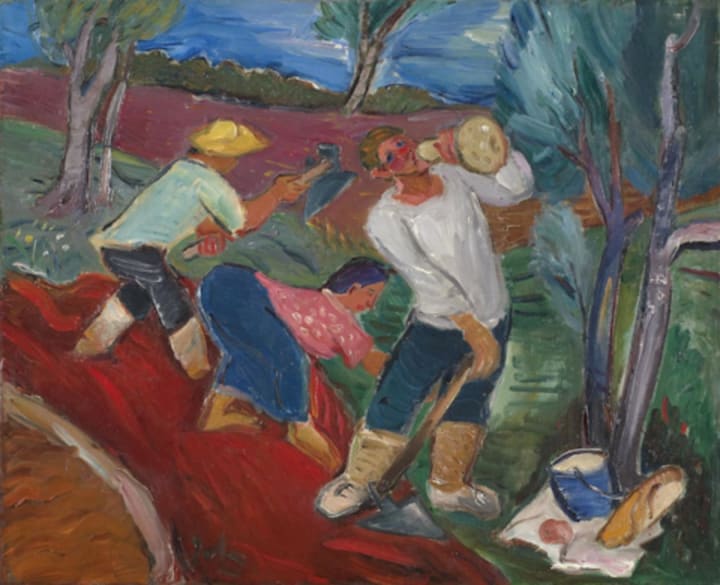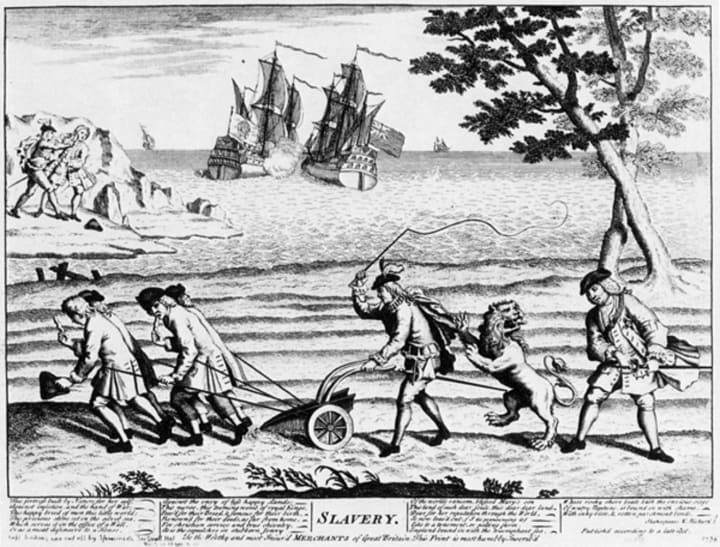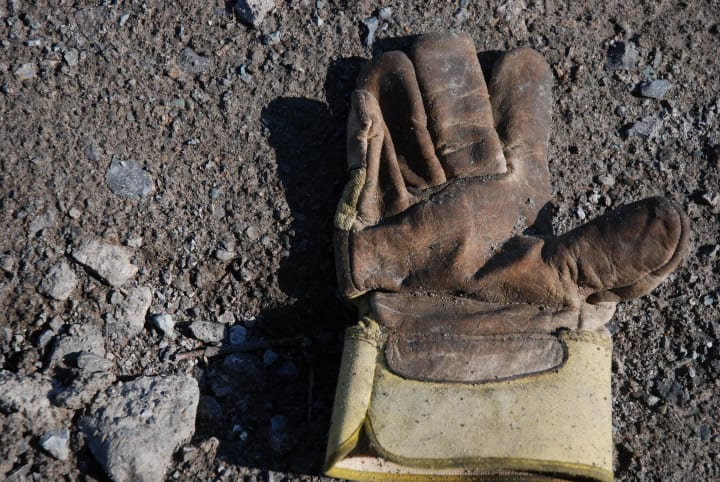THE BIRTH OF JOB SLAVERY'S MISERY
How Job-Slavery Started The Early Days

Prior to the current industrial revolution, the majority of individuals ran their own enterprises. They use their unique expertise to work on various enterprises. All of this, however, was altered when the industrial revolution began. The industrial revolution begins, bringing with it immense affluence and global growth. It quickly altered the way we live. Billions of people have already paid a hefty price for this revolution, and they continue to do so every day.
The Industrial Revolution's workforce has grown significantly since its inception. For instance, according to History Detectives, the industrial workforce in the United States quadrupled between 1860 and 1910 (a period of 50 years). Every day, the rise is growing.

The need for labor rose organically as a result of the industrial revolution. High labor mobility in the emerging industrial cities occurred at the same time as this need. As a result, employee complaints about how major corporations handled the tiny workers increased. This enabled industry leaders obtain more authority.
This circumstance served as the primary impetus for the establishment of the National Labor Union in the United States as a federation organization after the American Civil War. The American Federation of Labor serves as a nationwide federation of unions representing skilled workers decades after its founding, which Samuel Gompers dates to 1886. Since then, the union has become stronger and more entrenched with time.
Companies have been growing since the beginnings of the industrial revolution, which was followed by the establishment of the stock market. As the first publicly listed firm in history, Dutch East India Company established the first stock exchange in Amsterdam. The business raised money by selling shares and giving investors dividends. In 1611, the Amsterdam stock exchange was established, ushering in a new age of markets and corporate rivalry.

With the development of businesses and local and global markets, there is an unprecedented amount of pressure on business owners to compete for wealth and, in some cases, survival in such unforgiving markets. This is especially true after many businesses began to expand their operations internationally.
The greatest employment choice at the time was working for a firm since millions of individuals were unable to cover their living costs. Millions of individuals move their nations, localities, and lives as a result of this.
The bulk of people under capitalism are compelled to live in circumstances where they can only make ends meet by selling their labor as a commodity for predetermined amounts of time (workplace working hours).
When this work force is seen as a commodity in the industrial world, supply and demand laws apply to it. The rise in supply compared to demand causes workers to starve or go hungry. Similar to old slavery, the population has been reduced to a commodity, and the fortunate one who can find a buyer to pay for him.

All of these elements provide company owners greater ability to hire the workers they need whenever they need them and for whatever price they want. Numerous workers were compelled to give up their rights to get the ideal job because of the stark gap in living standards between those who are working and those who are not. The nasty side of the industrial revolution gradually emerged. The world began to understand what we now refer to as "the working culture." To safeguard their companies and manage employee behavior to their preferences, company owners devised new laws and regulations.
Karl Marx cited the French journalist Simon Linguet in Theories of Surplus Value as saying: "Our agricultural workers are forced to cultivate land whose fruits they will not consume, and our masons are forced to build structures they will not inhabit since there is no other way to survive. They are drawn to such marketplaces by their desire, where they wait for masters who will purchase them as a favor. It is their desire that drives them to beg the wealthy guy for his blessing to enrich themselves " (p. 274).
Nobody contests the substantial modifications that office culture has made to the way we live. The modifications went so much beyond that. It alters the demographics of how individuals are distributed globally. It alters our eating, sleeping, thinking, and even our dreaming patterns.
Although the industrial revolution had many benefits, it also brought about several changes that are still evident and felt today. The industrial revolution's impact on workers' rights is vital for us to understand in this book. As millions of workers struggle to find and keep employment, a propensity to renounce certain fundamental rights begins to emerge. Under the direction of the company owners, thousands of tales that our world is still guilty of came to light, leaving little room for pity for those wretched workers. This unprofessional behavior is often attributed to bad company employment policies, a toxic working environment, or psychotic managers. These all have one thing in common: they all have more control over workers.
Every employee deserves to have their fundamental human rights respected. Additionally, he must to be handled professionally. The job agreement is not a contract for servitude. Employees need to vigorously defend their rights. The workplace should be a better environment for everyone, not a sad one, thus their voice should be heard above the words of the company owners. Let's cooperate to stop the suffering from spreading. One day, instead of feeling sorry for themselves, workers will like their jobs.

In their essay that was included in the 1848 Manifesto of the Communist Party, Karl Marx and Friedrich Engels wrote: "The little workshop of the patriarchal master has been transformed by modern industry into the vast factory of the industrial capitalist. Workers at the plant are crammed together and organized like soldiers. They are put under the leadership of a flawless hierarchy of officers and sergeants like privates in the industrial army. They are not only the property of the bourgeoisie and the bourgeois government, but also of the machine, the overseer, and the individual bourgeois manufacturer on a daily and hourly basis. This dictatorship is petty, spiteful, and embittered the more it publicly declares gain as its objective and goal ".
How many options do workers have, then, while trying to find a method to make a living? If you take a close look at what the world has to offer right now, you will discover that chances for workers to get the positions they deserve are often quite small. In this universe, employers have the power to determine the tasks that workers must do. Does it seem that workers have freedom here? Obviously not. We must face the uncomfortable reality that many workers across the globe are held as slaves by their bosses. They serve as slaves for the human-made system. The industrial revolution has made them slaves. We still take pride in this.
About the Creator
Dr. Sulaiman Algharbi
Retired after more than 28 years of experience with the Saudi Aramco Company. Has a Ph.D. degree in business administration. Book author. Articles writer. Owner of ten patents.
Instagram: https://www.instagram.com/sulaiman.algharbi/






Comments
There are no comments for this story
Be the first to respond and start the conversation.